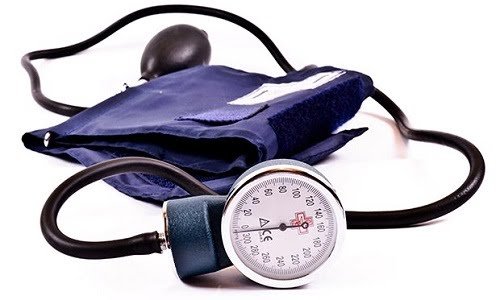Heart Disease is a concern for many adults around the world. Focusing on Nigeria, statistics reveal that over 150,000 Nigerians die annually as a result of heart-related diseases and shockingly according to sources from Thisday, the number is expected to increase to 23 million by the year 2030 if adequate measures are not taken.
This is as a result of poor diet, the absence of healthy lifestyle, lack of exercise, among others. So research from Gordon A. Ewy in the University of Arizona provided a number of ways to prevent and lower the possibility of stroke and heart disease. Here are 6 of the most important.
1. Reduce stress.

Stress contributes to cardiovascular disease and, if severe, can cause a heart attack or sudden death. There are plenty of options that help reduce stress, such as regular exercise, adequate sleep, striving for a good marriage, laughing, volunteering or attending religious services. Watching TV generally does not relieve, but rather, can aggravate stress. Also, try to avoid situations and people who make you anxious or angry.
2. Make exercise a religion.

The lack of exercise is contributing to the obesity epidemic. Studies indicate that walking two miles a day is optimal for overall health, and those two miles of walking do not have to be done all at once. Exercise does more than burn calories; it also activates genes that are beneficial to health in other ways. Plus, exercise is one of the best treatments for depression and anxiety. However, exercise alone cannot control or reduce your weight – you must also modify your diet.
3. Don’t smoke or expose yourself to second-hand smoke.

Evidence is overwhelming that cigarette smoking and second-hand exposure to smoke increases the risks of heart disease, lung disease, peripheral vascular disease and stroke.
4. Monitor your cholesterol (blood lipids) and blood pressure.

Abnormal or high blood lipids (fats) are a major contributor to cardiovascular disease. Your blood lipids include the LDL (bad cholesterol; remember as “Lousy cholesterol”), HDL (good cholesterol; remember as “Healthy cholesterol”) and triglycerides. The lower your LDL and the higher your HDL, the better your prognosis.
The amount of cholesterol in your blood is determined mainly by three factors: the amount produced by the liver (this is largely genetic), the amount absorbed from the intestinal tract (some from what you eat, but a lot more from cholesterol produced by the liver and excreted into the digestive tract) and, finally, age – your cholesterol increases with age.
If you are at risk, medication is almost always necessary to lower the LDL or to raise your HDL. The ideal ratio of total cholesterol divided by HDL cholesterol is 3.0. If higher, you might need a diet as therapy. The problem with diet is that, in general, it can only decrease total blood cholesterol by about 10 per cent. If you have a strong family history of elevated Lp(a) (rare abnormal cholesterol that increases the risk), drug therapy is usually needed.
High blood pressure, called hypertension, is known as “the silent killer” as it goes without symptoms in most individuals. High blood pressure causes wear and tear of the delicate inner lining of your blood vessels. The risk begins to increase from a pressure of 115/70 mmHg and doubles for each 10 mmHg increase in systolic (the larger number) and 5 mmHg increase in the diastolic (the smaller number).
Also when checking blood pressure It is best not to rely only on the readings at your doctor’s office as some individuals suffer from “white coat” hypertension – their BP is up only when they are at the doctor’s office. Others have “masked” hypertension – higher when not in the doctor’s office. Prognosis is best related to home BP. But for home blood pressure readings, you should not use finger or wrist units – only regular upper arm units, a wise move would be to buy a cuff meter
5. Limit your calories.

Trendy diets do not work. If any of them did, we all would be on THAT one, wouldn’t we?
If you have diabetes, your risk is the same as someone who already had a heart attack. Obesity is caused by consuming more calories than your body burns. Abdominal obesity is a major risk. Portion sizes and the amount of sugar in the Nigerian diet has dramatically increased over the past few decades.
At the same time, the daily amount of exercise has been decreasing. It is good advice to “drink slim” (water, tea, coffee). Use portion control before you start eating and push away from the table before you are “full.”
6. Stay informed: Science changes constantly.
 The only constant changes. This is especially true in medicine as new techniques and new insights develop constantly. Do not believe every piece of “scientific information” you find in the media or advertisements. An overwhelming number of research studies that make it into scientific publications are poorly designed or yield data that are not representative, e.g., due to a lack of a sufficient number of participants.
The only constant changes. This is especially true in medicine as new techniques and new insights develop constantly. Do not believe every piece of “scientific information” you find in the media or advertisements. An overwhelming number of research studies that make it into scientific publications are poorly designed or yield data that are not representative, e.g., due to a lack of a sufficient number of participants.
Keep in mind that many studies are financed or sponsored by individuals or companies with a vested interest in gaining favourable results. The situation can be especially confusing when scientific studies yield different or even contradicting results, and this happens quite often.
Read more here
http://www.herald.ng/4-drinks-that-help-reduce-high-blood-pressure/

